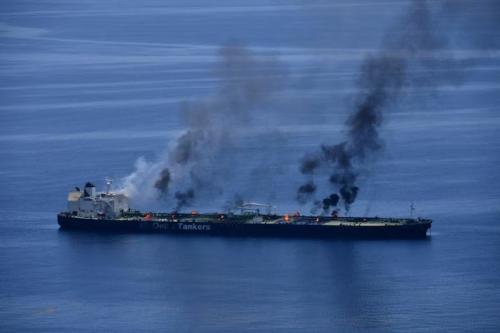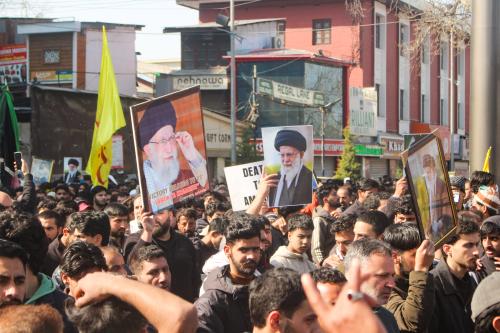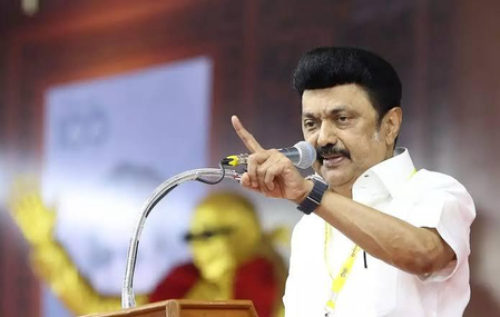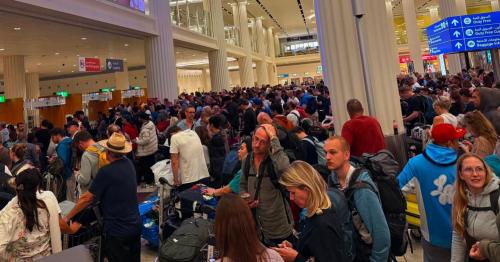New Delhi, July 27 (IANS) Monkeypox outbreak, that has so far caused more than 16,000 infections in about 75 countries and five deaths, can be contained, according to a World Health Organization (WHO) official. The infection was declared a public health emergency of international concern (PHEIC) by the WHO -- the highest level of public health alert by the global health body. "The reason that the alert was called is that we wish to ensure that we can stop the outbreak as soon as possible," Dr. Rosamund Lewis, Technical Lead on monkeypox in a video posted on Twitter. At a press briefing in Geneva, Lewis said that "right strategies in the right groups" are key to contain the outbreak. She hoped that declaring the infectious disease as a PHEIC will "enhance coordination, cooperation of countries and all stakeholders as well as global solidarity". But "time is going by and we all need to pull together to make that happen". While currently the monkeypox virus spreads among young adults and men with an average age 37, who have sex with men, it can also spread to more vulnerable groups, particularly in children, pregnant women, and those with weak immune systems. Lewis also pointed out the need to avoid stigma and discrimination, as that would harm the response to the disease. "At the moment the outbreak is still concentrated in groups of men who have sex with men in some countries, but that is not the case everywhere," she said. "It is really important to appreciate also that stigma and discrimination can be very damaging and as dangerous as any virus itself," she said. Lewis also stated that at the moment "mass vaccination is not required", but the WHO had recommended post-exposure vaccination. "The WHO has recommended interim guidance vaccination for those who have been exposed, the post exposure prophylaxis, as well as for those who may be at risk of preventive vaccine prior to exposure," she said. Meanwhile, the WHO is also working to determine a global coordination mechanism for monkeypox vaccines. Vaccine sharing should be done according to public health needs, country by country and location by location. Not all regions had the same epidemiology, she explained. Lewis stressed that countries with manufacturing capacity for smallpox and monkeypox diagnostics, vaccines or therapeutics should increase production. Countries and manufacturers should work with WHO to ensure they are made available based on public health needs, solidarity and at a reasonable cost to countries where they are most needed. Lewis explained that some 16.4 million vaccines were currently available in bulk but needed to be finished. The countries currently producing vaccines are Denmark, Japan, and the US. But Lewis said even after vaccination, "it takes several weeks for an immune response to be generated by the body". Thus, the current recommendation for persons with monkeypox was to isolate and not travel until they recovered; contact cases should be checking their temperature and monitoring possible other symptoms for the period of 9 to 21 days. Monkeypox is contracted as a result of prolonged personal contact with an infected individual (including sexual contact) or coming into contact with their contaminated belongings. Symptoms usually include one or more of the following: rash, spots, ulcers, or blister-like lesions anywhere on the body, but often in the genital area; swollen and painful lymph glands; and fever, headache and muscle aches, chills or exhaustion.
WHO says monkeypox outbreak can be contained
- by Rinku
- July 27, 2022 2 minutes
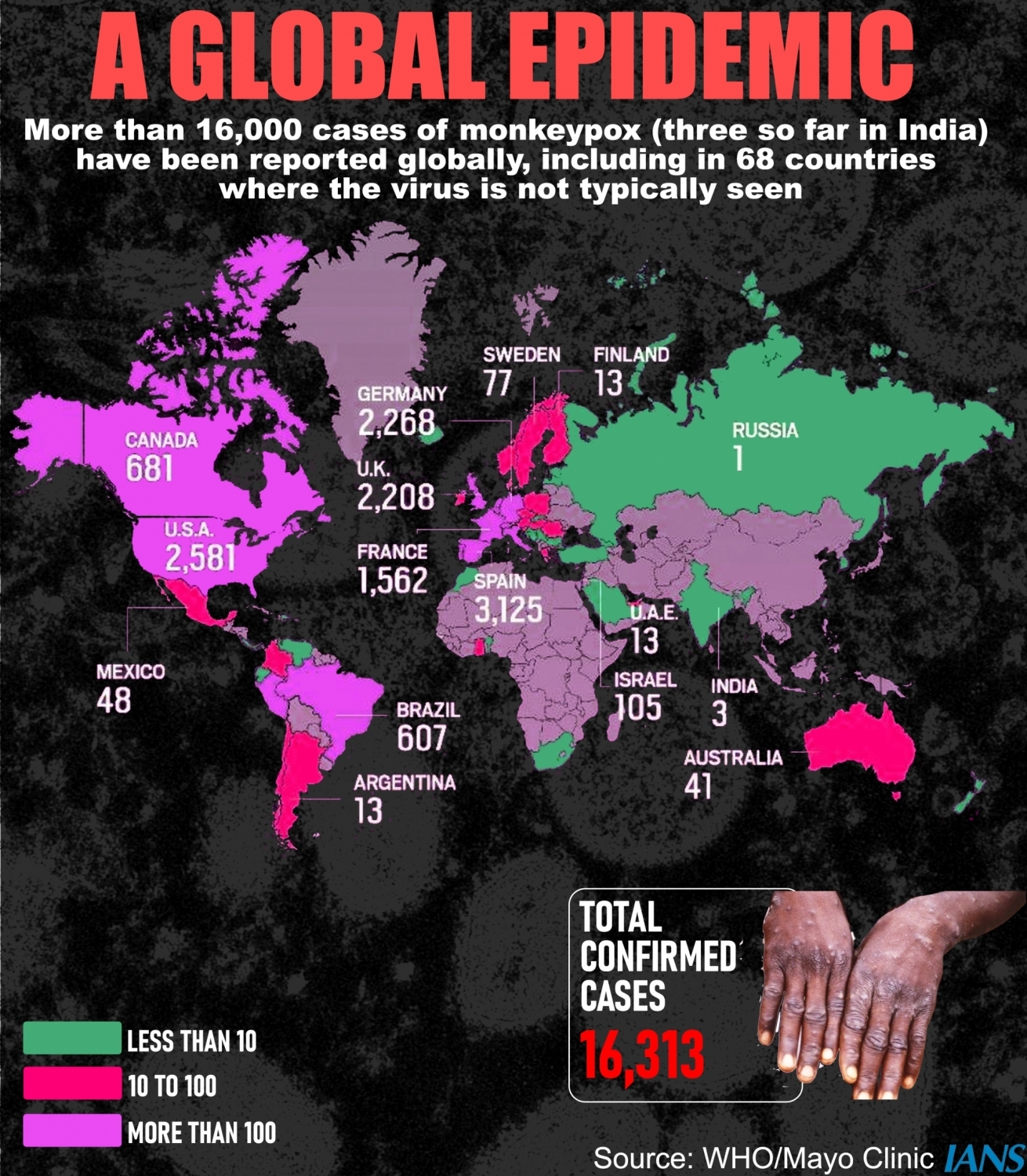
A GLOBAL EPIDEMIC. (IANS Infographics/Shimran Chatterjee)




